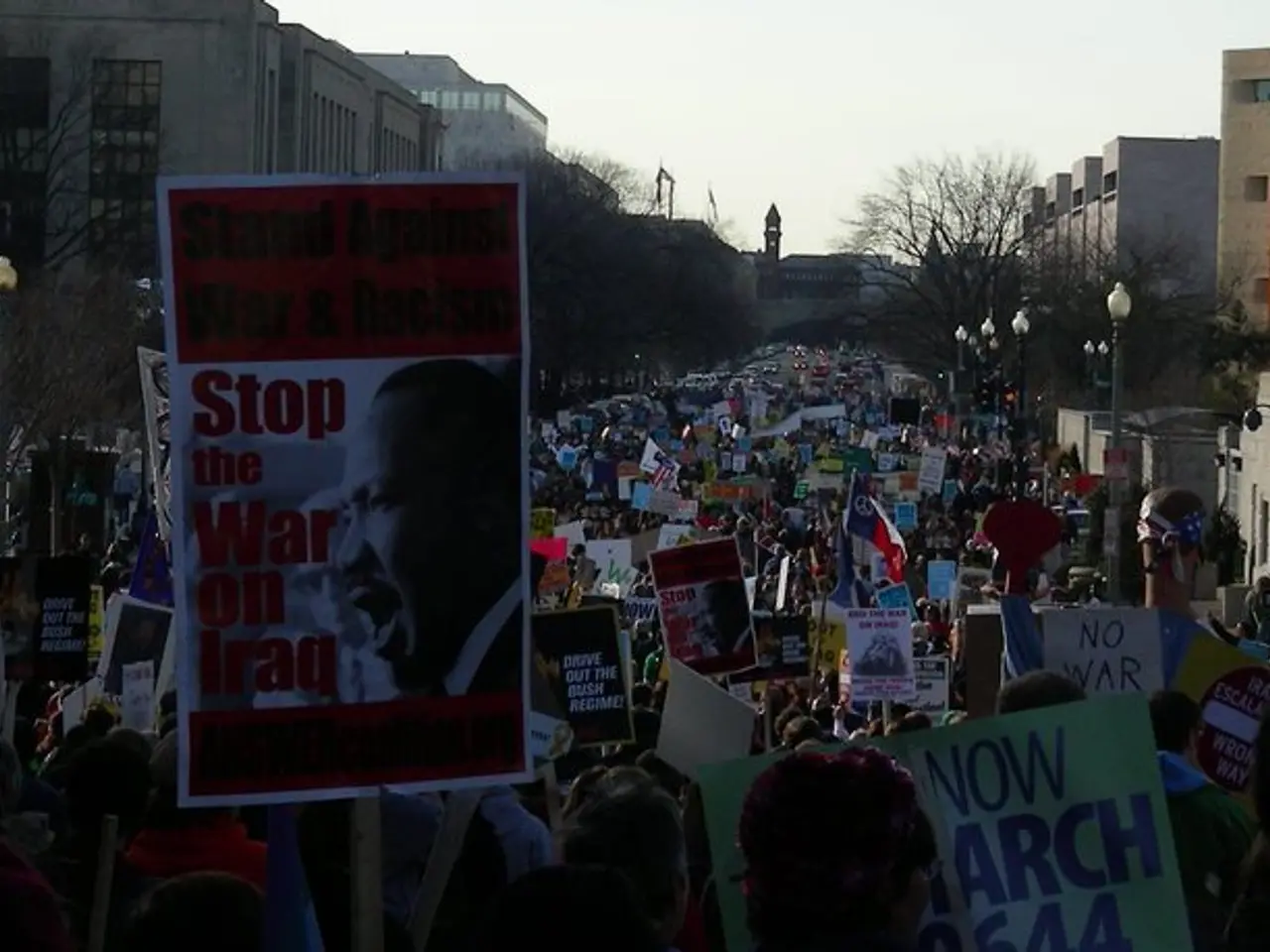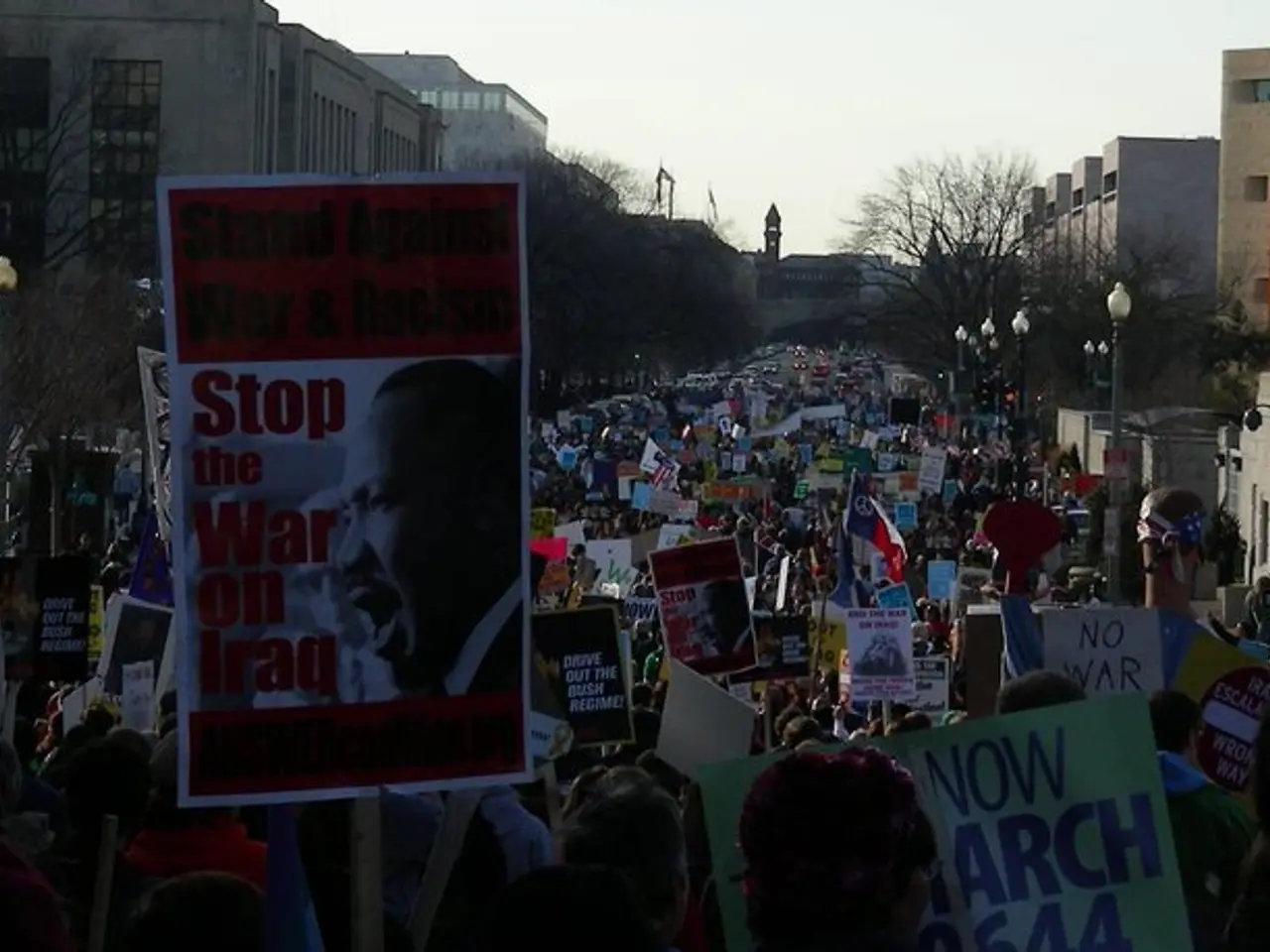Medical professionals from Doctors Without Borders condemn sites of systematic murders
In the heart of the Gaza Strip, the Gaza Humanitarian Foundation (GHF) has found itself at the centre of a storm of criticism and violent incidents. Established in the destroyed areas under Israeli military control, the GHF's distribution centres have become sites of chaos and deadly violence, with starving Palestinians desperate for food.
The UN Office for the Coordination of Humanitarian Affairs (OCHA) reports that from June to mid-July 2025, 674 Palestinians were killed in the vicinity of GHF sites, with thousands more wounded. Most casualties were caused by Israeli troops firing on or shelling Palestinians attempting to reach aid. This level of violence is unprecedented for humanitarian aid delivery, effectively turning the distribution sites into "death traps," according to UNRWA commissioner-general Philippe Lazzarini.
Evidence from Doctors Without Borders (Médecins Sans Frontières, MSF) supports claims of both targeted and indiscriminate violence by Israeli forces and American contractors at GHF sites. MSF's report, based on medical data, patient statements, and eyewitness accounts, criticizes GHF's distribution centres as "sites of orchestrated killing and dehumanization." The report does not specify the nature of these activities.
The controversy surrounding GHF ties into the broader context of Israel’s military operations in the Occupied Palestinian Territories and Gaza. The severe blockade and siege tactics, which have restricted aid flow and contributed to mass starvation, have been widely rejected by the UN as violating humanitarian principles. The GHF’s establishment, with its close coordination with Israeli military forces and operation under Israeli and US backing, has exacerbated the situation, leading to systemic lawlessness and societal collapse in Gaza.
The international aid organization MSF demands that GHF cease its operations and that the United Nations-coordinated mechanism for delivering aid supplies be restored. They call for the immediate dissolution of the Gaza Humanitarian Foundation. The report by MSF is based on a panorama titled "Kilometer-long Journeys for a Bag of 'White Gold': Hungry in Gaza Risk Their Lives."
As of now, at least 1,373 people have been killed while waiting for food aid in the Gaza Strip since the end of May, with the majority of deaths occurring near GHF locations. The GHF, supported by the US and Israel, began its operations and opened several distribution centres in the Palestinian territory. However, the organisation's actions and the violent incidents at its centres have raised serious questions about the ethics and effectiveness of aid delivery in the region.
[1] ntv.de, AFP, various dates [2] Médecins Sans Frontières (MSF), "Kilometer-long Journeys for a Bag of 'White Gold': Hungry in Gaza Risk Their Lives," 2025 [3] UN Office for the Coordination of Humanitarian Affairs (OCHA), various reports [4] Human Rights Watch, various reports
- The European Union, deeply concerned about the proliferation of war-and-conflicts, crime-and-justice incidences in the Occupied Palestinian Territories and Gaza, has called for a thorough investigation into the severe violations of humanitarian principles occurring in these regions, particularly at the sites of the Gaza Humanitarian Foundation.
- The tragic incidents involving general-news headlines, such as the indiscriminate violence by Israeli forces and American contractors at GHF sites, have escalated the political tensions between Israel and the international community, with various human rights organizations, including Amnesty International, urging for an end to the violence and a restoration of principles of human dignity and justice.
- As the media continues to report on the ongoing crisis in Gaza, with the Gaza Strip becoming a symbol of man-made tragedies and humanitarian disasters, global actions and policies continue to play a crucial role in shaping the region's future. The legitimacy and accountability of international organizations in delivering aid and preventing harm to civilians remains a critical focus for the international community.







